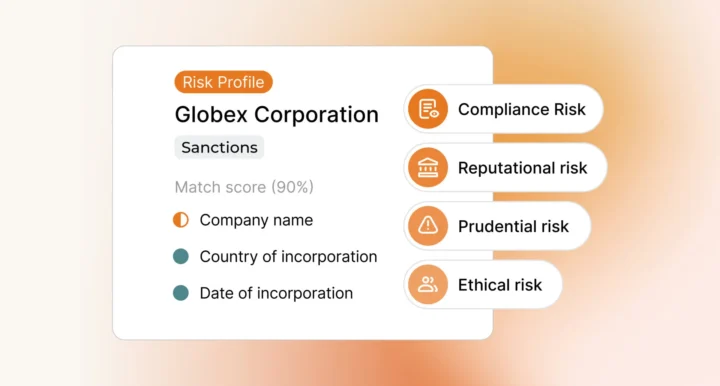As President Trump heads towards the end of his single term of office, one of the most important changes to beneficial ownership rules, which has made its way through both the House and the Senate with such a huge margin of votes that it is now “veto proof” and almost certain to be enacted, despite recent social media activity by Mr Trump indicating he will veto the encompassing National Defence Authorization Act within which it sits.
“Surely Trump can have nothing against corporate transparency?” I hear you asking. But the threatened veto is nothing to do with the act at all but simply a quid pro quo for the house failing to repeal section 230 of an entirely different piece of legislation (The Communications Decency Act) which protects social media companies from prosecution for libel on the basis that they are not “publishers”.
Both Democrats and Republicans have indicated they would vote to override the veto should such an event come to pass.
Notwithstanding this seeming fit of pique by the outgoing president, the changes to Anti-money Laundering laws are both extensive and profound (with some reservations as explained below). And, for the sake of clarity, the enactment of this legislation, whilst occurring at the point of Trump’s departure, has little or nothing to do with the president himself.
It is the culmination of years of effort by a small group of campaigners both within the government and in advocacy organisations to ensure that corporate registers contain meaningful beneficial ownership information.
Let me start with the ”why” – transparency is our best weapon for fighting financial crime. To launder the proceeds of crime, to embezzle funds, to peddle corruption, almost always relies on creating entities where the ownership structure is opaque or hidden. These entities, often registered offshore to further hide ownership, are the lifeblood of the criminal world. To wit, if all company ownership was visible, who owned which companies, which companies owned which assets, and ultimately in whose back pocket money ended up– criminal finance would be extremely difficult indeed.
And it is worth noting, before highlighting some of the important aspects of the new legislation, examples from the currently situation. In, say, Delaware for example, to create a Limited Liability Corporation you have to complete a one-page form identifying the proposed name of the company, the registered address, and the name of the registered agent responsible for overseeing the process. And that is it!
The Anti-Money Laundering Act 2020 means all of that is going to change very soon. Here are some of the key points (both positive and potentially negative):
- FinCEN (the US Financial Crimes Enforcement Network) will be required to own and maintain a full beneficial ownership registry for legal entities registered in the US.
- According to the legislation, the registry will be “highly useful” to various arms of national and federal agencies including national security, intelligence, and law enforcement as well as federal regulators.
- The act will only allow financial institutions access to the registry with the permission of the entity whose details are being queried.
- This is likely to be a significant aid in the onboarding process
- But it is unlikely to be of help when performing investigations raised by transaction monitoring alerts, internal SARs or other control measures designed to identify potentially suspicious actors utilising a financial institution’s products or services.
A key difference between the US approach and, say, the one here in Europe is that the US has decided to maintain its current definition of a beneficial owner, which is someone who owns or controls at least 25% of the entity. Here in the UK and also in the EU it is more than 25%. Whilst in practice this might only be a difference of 1 share, it also means the difference between having, effectively, a maximum of either 3 or 4 beneficial owners.
In addition, there are other jurisdictions around the world which use different percentages (5%, 10%, 20% etc).
It is certainly true from my own research, albeit across a relatively small population, here in the UK, that the commencement of the Person with Significant Control (PSC) regime in April 2016 saw a significant migration of shareholdings of “suspicious” entities from what was, prior to that, the common sight of 100% owned by a company based in a secrecy jurisdiction, to four 25% shareholders (often in very different jurisdictions around the world) which then precluded the requirement to place them on the PSC register.
It does not make the job of the banks and other financial institutions any easier, particularly when they have a multi-jurisdictional or global footprint, when the rules relating to beneficial ownership vary country by country.
What is a bank to do if it has a relationship with a company in, say, the US and Germany, where the company has four equal shareholders? Does it perform the necessary due diligence in the US (where they meet the criterion for beneficial ownership) but not in Germany (where they do not).
Would it breach the German privacy laws if additional due diligence was sought when it was not strictly required by law?
And what happens if, as a result of performing the correct level of due diligence in the US, the firm discovers that one of the 25% shareholders is a PEP when they would have made no such discovery if the client was solely onboarded into Germany and they would not have been required to check?
There are many other changes being brought in by the legislation which will make their way into the public domain over the coming weeks and months but the changes to the beneficial ownership regime is likely to be the most far reaching, provided that the momentum created by this first tentative “toe in the water” is maintained and there is sustained campaigning to ensure the register is ultimately open to public scrutiny.
In respect of this piece of legislation then, the end of term report might well read “a good effort but more work needed to complete the task.”
Graham Barrow
Ripjar Strategic Advisor
18th December 2020
Last updated: 16 August 2024





